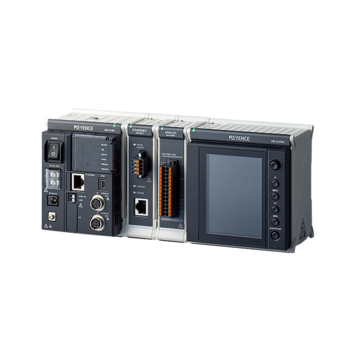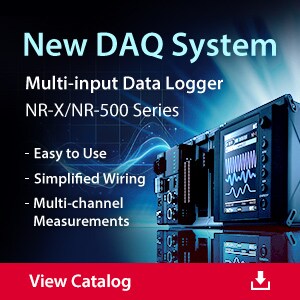Data Acquisition (DAQ)
Automotive Data Collection During On-Vehicle Testing
-
Tags:
- Data Acquisition , Automotive
Just like engine bench testing is crucial for developing new engines, diagnostics, and optimization of existing ones, on-vehicle testing is essential for developing entire automotive systems. Automotive data collection, often conducted by data acquisition systems, provides valuable insight into vehicle performance, safety, and reliability. By capturing a wide range of parameters, engineers can make informed decisions to enhance vehicle design and functionality.
Importance of Automotive Data Collection and Analysis In-Vehicle Testing
Though multifaceted, the importance of Automotive data collection and analysis in vehicle testing lies in gathering accurate and comprehensive data about the vehicle and its behavior. By analyzing this data, engineers can easily identify areas needing optimization. These often include but aren’t limited to engine efficiency, fuel consumption, and handling characteristics.
On-vehicle testing data collection also facilitates the evaluation of safety features and systems’ effectiveness, ensuring that they function correctly and reliably under different conditions. This helps demonstrate compliance with regulatory standards and requirements.
Lastly, automotive data collection in automotive manufacturing also provides detailed data analysis, which helps identify and troubleshoot various issues and further enables corrective actions that would prevent potential failure.
We’re here to provide you with more details.
Reach out today!

Challenges in Automotive Data Collection During Vehicle Testing
Automotive data collection during on-vehicle testing brings its own set of challenges, including environmental variability, which implies diverse and unpredictable environmental conditions. These systems also generate exorbitant amounts of data from numerous sensors, often requiring additional processing and storage provided by data acquisition systems.
However, the greatest of these challenges is the sheer complexity. Vehicles are incredibly complex systems with interconnected components. Data acquisition in such systems should collect and seamlessly integrate real-time information from the vehicle’s various sub-systems to provide a complete and comprehensive view of its performance.
Understanding Automotive Data Collection Methods for Vehicle Testing
Not all on-vehicle testing data collection methods for vehicle and electric vehicle testing are the same, and not all of them yield the same results. On-board data acquisition systems are usually installed within the vehicle to collect data from various sensors and ECUs in real-time, and they’re designed to withstand the harsh conditions of on-road testing while maintaining data integrity and reliability.
Automotive data collection also relies on video and imaging systems that capture visual data, which is then used to analyze different metrics, including driver behavior. Manufacturers also rely on telematics, remote on-vehicle testing data collection, and inertial measurement units to derive different data for collection and subsequent analysis.
Best Practices in Automotive Data Collection for Vehicle Testing
Just like design and manufacturing, automotive data collection for vehicle testing also requires comprehensive and meticulous planning with clearly defined objectives and requirements for vehicle test data collection. You should also ensure that all the sensors are properly calibrated to ensure accuracy and reliability, and you should implement procedures for verifying and validating collected data to detect and correct any anomalies or errors.
This is often achieved using redundancy sensors and data storage solutions that ensure continuous data availability and uninterrupted on-vehicle testing data collection. Of course, all gathered data should use standardized data formats and protocols to eliminate compatibility issues between different systems.
Ensuring Data Security and Compliance in Vehicle Testing
Data security and compliance are critical in vehicle testing to protect sensitive information and ensure adherence to regulatory requirements and demands. This includes data storage, access control, and simply adhering to best practices.
If you’re looking to improve your automotive production lines, please contact KEYENCE, the world’s leading expert and provider in precision measurement technologies like data loggers, and inquire about possible integrations of KEYENCE’s equipment with your pre-existing manufacturing setup—our trained staff is there to help you select the best possible solution.
Contact us to learn more about how our advanced technology can help take your business to the next level.
Contact Us



